October 9, 2020 — Editor’s note: This feature, part of a collection of stories around reducing the threat of wildlife-transmitted disease, is supported by funding from the Solutions Journalism Network.
Under a waxing gibbous moon, Felix Byamukama set out into Bwindi Impenetrable National Park in southwestern Uganda to hunt bush pig and duiker. He didn’t plan on coming face to face with a 400-pound silverback in the dense jungle — but when he did, fear got the best of him. Byamukama speared the mountain gorilla, then left him to die.
The gorilla’s death sent shock waves through the conservation community around the world. Scientists and conservationists have devoted decades to saving endangered mountain gorillas, about half of which live in the park. Tourists pay hundreds of dollars to track them in the wild. “It really came as a big shock to us all,” says Gladys Kalema-Zikusoka, founder of Conservation Through Public Health (CTPH), a non-governmental organization that operates around Bwindi. “It is likely that hunger and desperation drove [Byamukama] to the forest.”
When Uganda’s international borders were sealed to protect against the Covid pandemic, visitors to national parks and wildlife reserves dropped from 25,000 per month to zero, translating into a US$2 million monthly loss in revenue for the Uganda Wildlife Authority (UWA), said Sam Mwandha, executive director of UWA, in a webinar in June hosted by the Earth Journalism Network. UWA is the government agency tasked with, among other things, protecting wildlife against poaching. Nature-based travel typically adds nearly US$30 billion annually to the GDP of Africa as a whole; the World Bank predicts the GDP of sub-Saharan Africa alone could shrink by up to 5.1% because of the coronavirus pandemic.
“The tourism industry has been absolutely smashed as a result of Covid,” says Peter Lindsey, director of Wildlife Conservation Network’s Lion Recovery Fund, “and that left the conservation sector in Africa extremely exposed and massively underfunded.”
It’s a story writ large across the continent. “Overnight, as countries started shutting down, they shut down the sector that has been a source of funding for many of our conservation activities,” said Kaddu Sebunya, CEO of African Wildlife Foundation (AWF) in a webinar led by the African Civil Society Organizations’ Biodiversity Alliance. “Revenues that have been funding management of these areas went from thousands to zero. We see the impact of that in reduction of patrols in national parks, reduction of activities, reduction of wages and laying off a lot of community people that had been participating in these areas for business and their livelihoods.”
Coinciding with this trend has been an uptick in poaching — whether from hunger or opportunity — in the vein of Byamukama’s bushmeat hunting. “Tourists don’t just bring revenues; they’re extra eyes also, and their presence in these national parks deterred poachers,” added Sebunya.
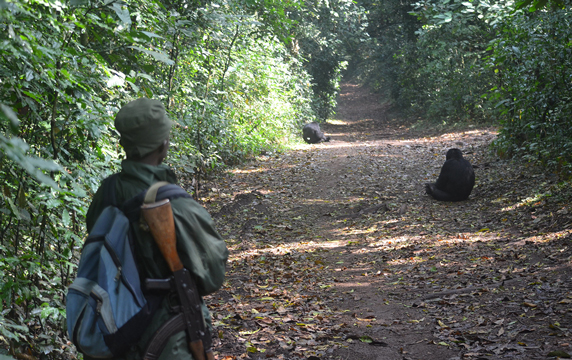
“The solution to addressing poaching lies in communities — involving them as game guards, making sure they benefit from wildlife, that the costs of living with wildlife are minimized, and ensuring they have alternative ways of making a living other than poaching,” says Dilys Roe, a principal researcher for the International Institute for Environment and Development. Photo of a park ranger courtesy of ILRI/Mann from Flickr, licensed under CC BY-NC-ND 2.0
The increase in bushmeat hunting will have ripple effects, including a heightened risk of spreading novel zoonotic diseases. Due to this, some have called for bans on “wet markets” and wild animal trade, while others consider such bans not only unjust but also unlikely to reduce poaching. According to much research, letting local and indigenous populations have a genuine say in how to manage local wildlife resources — and ensuring their needs are met — is far more likely to reduce poaching by shifting the balance of incentives.
Wild Animals and Zoonotic Disease
By definition poaching is illegal killing of wildlife, as opposed to legal hunting, which also occurs in many African nations. Between February and May 2020, Uganda counted 367 poaching incidents, double that of the same time period in 2019, according to George Owoyesigire, UWA’s deputy director of community conservation. Meanwhile, the Kenya Wildlife Service (KWS) confiscated 2.8 metric tons (3.1 tons) of poached meat from January through May, compared with 1.8 metric tons (2 tons) in those months last year, said KWS director general John Waweru in the Earth Journalism Network webinar. Bushmeat poaching has increased in several other countries as well, including parts of Zimbabwe, Mozambique, Namibia, Rwanda, Botswana and Zambia, according to Lindsey. Rhino poaching has also increased in some places.
In an ironic twist, eating wild animals puts people at risk of yet another zoonotic disease epidemic. “Animals can carry pathogens and pass diseases to each other and to human beings who interface with them,” says Kalema-Zikusoka. Most scientists agree the virus responsible for Covid first transferred to a human after exposure to a wild animal. Likewise, the 2014 Ebola crisis in Western Africa arose from contact with a fruit bat, then spread person to person. There’s anthrax, avian flu, SARS and MERS — the list goes on.
“Many people don’t know dangers of eating wildlife off the forest,” says Philip Muruthi, AWF’s vice president for species conservation and science. “This is how Ebola came; this is how we are told Covid came. It is our duty to educate people.” And often, when someone snares or traps a wild animal, it gets sold on the market — putting more people at risk.
Are Bans the Answer?
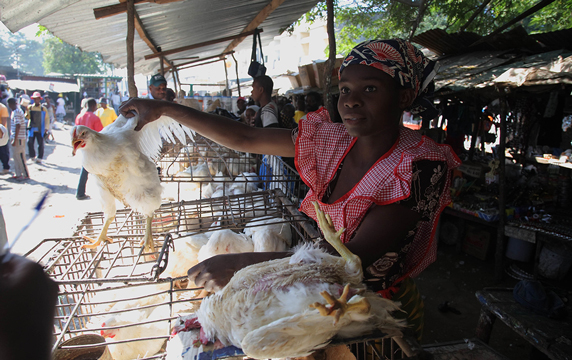
When Covid began spreading around the world, many swiftly called for global bans to wet markets as well as wildlife trade. But others say that response is reactionary, short-sighted and extremely inequitable to local and indigenous people. Photo courtesy of ILRI/Mann from Flickr, licensed under CC BY-NC-SA 2.0
Wildlife trade involves both legal and illegal sales of animal products: meat, skins, pets and more. Wet markets — markets with open-air slabs of meat, from chicken to antelope, buffalo and rat, sold legally out in the open, interspersed with vegetables and other goods — are one such place for their sale. Some wet markets are also hubs for illegally caught wildlife — dead and alive.
But those who work closely with frontline communities say bans are reactionary, short-sighted and extremely inequitable to local and indigenous people whose livelihoods have already suffered greatly from the loss of tourism dollars and who depend on hunting for food. Bans on wet markets not only won’t work, they say, but will push wildlife trade underground, where it’s harder to track.
“A ban on wet markets would not only do little to address risky wildlife trade but it would also undermine the food systems of those who depend on them,” says Dilys Roe, a principal researcher for the International Institute for Environment and Development (IIED). “The wildlife trade generates essential resources for the world’s most vulnerable people, contributing to food security for millions, particularly in developing countries. Banning all trade means cutting off this essential lifeline.”
“In many cases, a sustainable wildlife trade can provide key incentives for local people to actively protect species and the habitat they depend on,” says Roe. With the closure of parks, reduction in tourists and game guards, and loss of income, people who formerly had an incentive to conserve have a new choice: Continue to protect wildlife for “free,” or turn the tables and start to poach. Even if someone doesn’t hunt themselves, they can buy bushmeat that’s become more readily available. Making wildlife a resource — instead of something that is completely off limits — provides people incentives to conserve, experts say.
Zambia, Zimbabwe, South Africa and Namibia have legalized ranching of wildlife and the sale of game meat, in part to counteract poaching. Another benefit could be reduced risk of zoonotic diseases.
Involving Local Communities
“Some studies around protected areas have cited poverty as one of the root causes of poaching, illegal wildlife trade, illegal resource access and environmental degradation,” says Owoyesigire. Where wildlife populations provide other economic and social benefits — whether tourism or a legal game meat trade — locals are motivated to engage in efforts to combat poaching and illicit trade. Providing livelihood opportunities to communities that are separate from tourism will be key going forward, according to experts such as Muruthi. “Who knew Covid was coming? Everything was predicated on the fact that there will be tourism,” he says. “That’s the lesson I’m learning. When we design programs, including conservation programs, we must build into them unseen circumstances.”
So, what does this look like? NGOs are scrambling to figure that out. AWF rushed to provide personal protective equipment to the communities they work with so they could continue their anti-poaching patrols and other work in safe conditions. They ramped up certain livelihood projects, including soap-making in Cameroon and chili-growing in communities near Uganda’s Murchison Falls, where elephants sometimes raid crops. “Chili drives elephants from your gardens,” says Muruthi. “So it’s a dual program, where the chili is a cash crop, and ‘chili fences’ keep away elephants.” Similarly, CTPH has an ongoing coffee livelihood project where bags were sold to tourists; they quickly shifted to export the coffee in Europe to enable that project to continue.
However, ensuring that livelihood projects actually deter poaching requires understanding motivations, says Roe. “People who design them often make false assumptions about why local people do what they do,” she says. “They may assume that if they provide a community with chickens, for example, it will stop them hunting wildlife for meat. But they are assuming the reason for hunting is a lack of any other sources of meat, while the actual reasons may be preferences due to culture, taste [and] perceived or real health risks associated with both domestic as well as wild meat.”
“Some of the wildlife agencies and NGOs had some funding reserves, but those are going to start running out pretty quickly. We do expect that while 2020 has been tough, that 2021 will be tougher.” –Peter Lindsey
“[Bushmeat] in a protected area has a fairly high value. It’s still going to be an asset someone else will exploit if you don’t protect it,” adds Lindsey. “You need a combination of carrot and stick approaches. … It’s about trying to develop projects that tackle this issue from multiple sides. One side is protecting the resource. Another side is making sure that your immediate neighbors are allied with conservation efforts and that their basic needs are covered.”
Poacher or Protector
Had Byamukama not needed to hunt for bush pig and duiker in the forest that evening, the gorilla he killed might still be alive. But the gorilla’s untimely death highlights broader concerns: In the face of a global pandemic, how can conservation efforts address people’s needs and reduce the likelihood that poaching will contribute to another infectious disease outbreak? It’s complicated, but nearly everyone agrees it begins by involving impacted individuals.
Reinventing African conservation with little to no tourism, at least for the foreseeable future, will be no small feat. Governments are scrambling to find replacement income to keep past gains and not lose ground — not only with wildlife, but also with communities who had, up to now, benefited from wildlife and tourism. By all accounts, things will likely get worse before they get better. “Some of the wildlife agencies and NGOs had some funding reserves, but those are going to start running out pretty quickly,” says Lindsey. “We do expect that while 2020 has been tough, that 2021 will be tougher.”
It’s a situation rife for innovation, and calls for action have been made across the world. For example, the Luc Hoffmann Institute and African Leadership University launched a global innovation challenge for people to develop new revenue models for conservation. UWA has kick-started a Community Livelihood Support Programme, which aims to provide alternatives to wildlife crime, Owoyesigire has said. Other countries, foundations and NGOs are similarly looking for innovative ways forward.
Related Posts
Ensia shares solutions-focused stories free of charge through our online magazine and partner media. That means audiences around the world have ready access to stories that can — and do — help them shape a better future. If you value our work, please show your support today.
Yes, I'll support Ensia!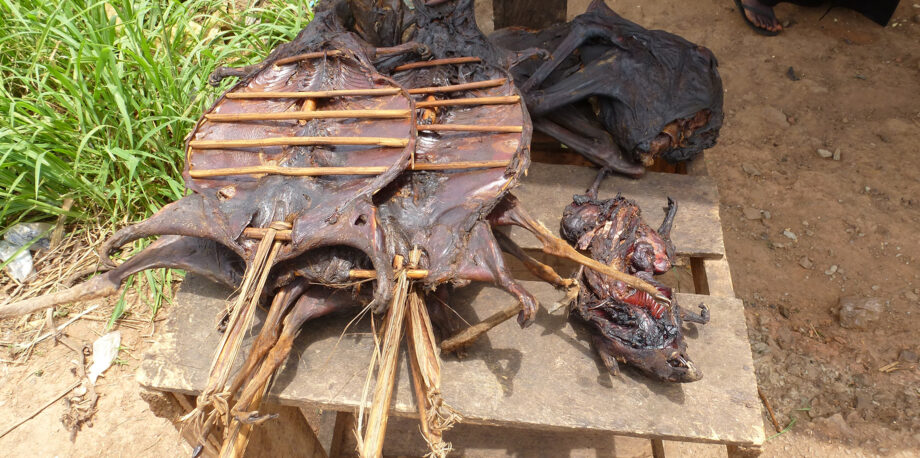


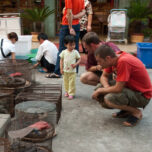
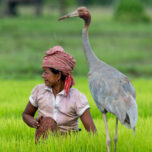
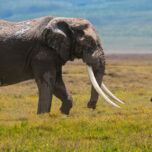
gaining a better understanding the relationships between all these different organizations, the indigenous peoples, and the environment we are all trying to protect. This article is very useful to me and helps to guide my efforts to improve our world.